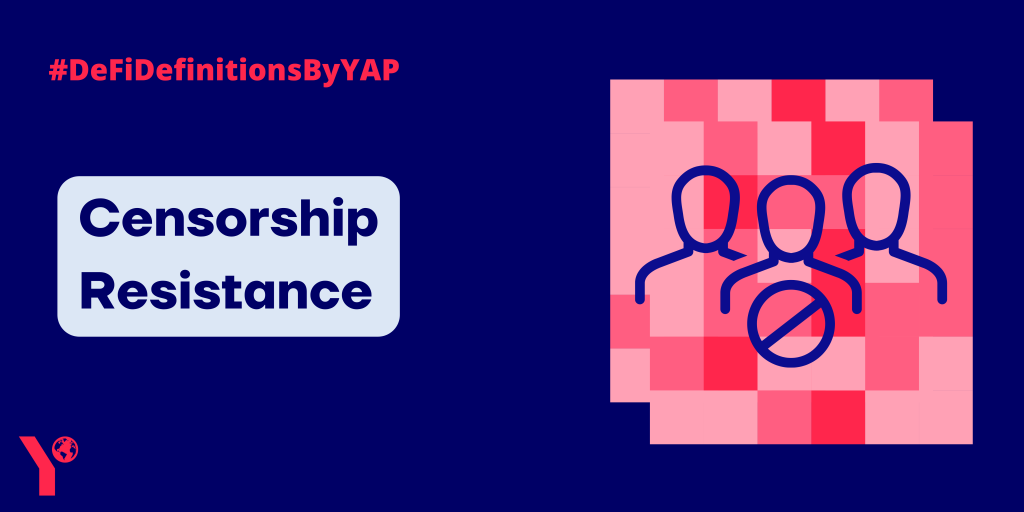With an increased lack of privacy and trust in the internet, people are turning to Web3 for its decentralized nature and high level of censorship resistance.
Censorship resistance refers to the concept that no individual or entity can stop others from using a protocol or carrying out an action. In blockchain technology, this idea specifically refers to the freedom to transact and freedom from asset confiscation. In other words, anyone can transact without the approval or intervention from third parties. Through censorship resistance, blockchain transactions will remain public, permanent, and unalterable, establishing transaction immutability that prevents political or social influences.
Back in 2017, the term was first introduced by Adam Ludwin, the ex-CEO of Chain, when describing the unique value proposition of cryptocurrency. Censorship resistance is especially important when building DeFi protocols as it effectively lowers the barriers to entry while eliminating the middleman or government institutions. Many see censorship resistance as a way towards achieving financial freedom.
Although it is very difficult to censor blockchains, it is not entirely impossible. A 51% attack could be used to temporarily censor transactions. However, this rarely occurs as it takes a lot of resources and capital to conduct such an attack.
